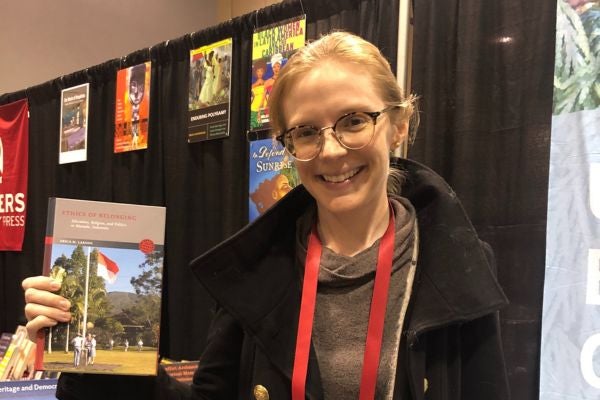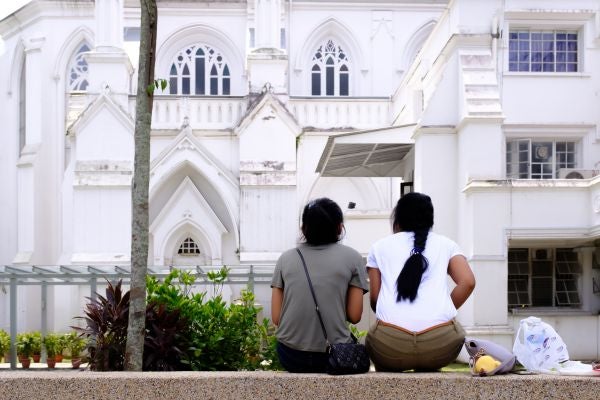Partisanship and punishment during the pandemic: Comparing Indonesia, Malaysia and Thailand
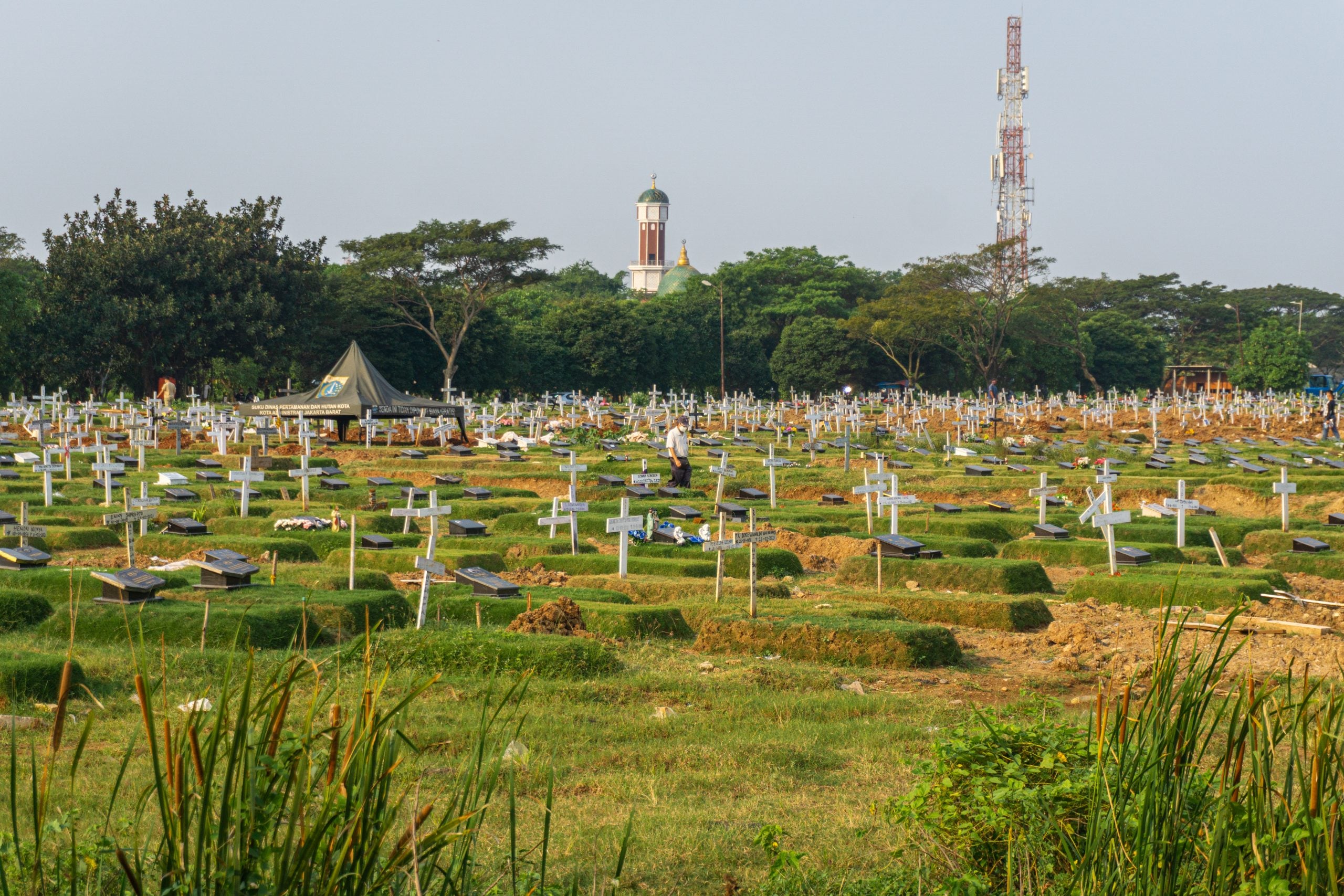
External shocks and existential crises can sometimes heal community divisions. The shared trauma of a natural disaster, for example, can potentially create a sense of solidarity among previously hostile groups. Pandemics, however, are different. Historically, studies have shown that fear of contagion generates distrust between communities, stokes people’s latent prejudice, and deepens partisan divides. Fear of one’s physical safety and death generates all sorts of social psychological reactions, with some research showing that under such circumstances people to tend to blame, or punish more severely, those from outside their own group or those who challenge their own worldview.
With the support of ARI’s Collaborative Grant scheme, and together with two other ARI postdocs, Gerard McCarthy and Yang Yang, we examined these dynamics in Southeast Asia using an online survey of 1,760 citizens across three countries – Indonesia, Malaysia and Thailand.
The goal was to provide preliminary insight into how people’s partisan identities inform their diverse experiences of and opinions about the virus, with a view to using the data as the basis for developing a larger project on political identities and the pandemic in Asia. The survey was wide-ranging, with questions on identity, nativism, and redistribution.
In this piece, we use the data to explore how partisan identity not only influences people’s perceptions of the government’s pandemic response (which other research has demonstrated), but also how people react to different groups who flout or ignore health and security protocols. Investigating this problem is important, because we know that minorities and other politically excluded groups often experience economic and health crises differently, and become the target of punitive community or state actions.
Why these three countries? Each country has a different regime-type, and displays different levels of partisan political division. (I offer a very brief description here, but this recent Carnegie Endowment report paints a more detailed picture of the complex divides in each country.)
In Indonesia, the most democratic of the three cases, the political landscape has long been structured around an ideological divide between religious pluralists and political Islamists. But such divisions only became heavily politicised in elections over the past five years.
In Malaysia on the other hand, while the party system is immensely fragmented, competition between UMNO (the party that promotes the interests of the country’s ethnic Malay majority) and its coalition on one side, and a collection of anti-UMNO and pro-democracy parties on the other, has dominated the country’s politics for decades, and become increasingly intense in recent years.
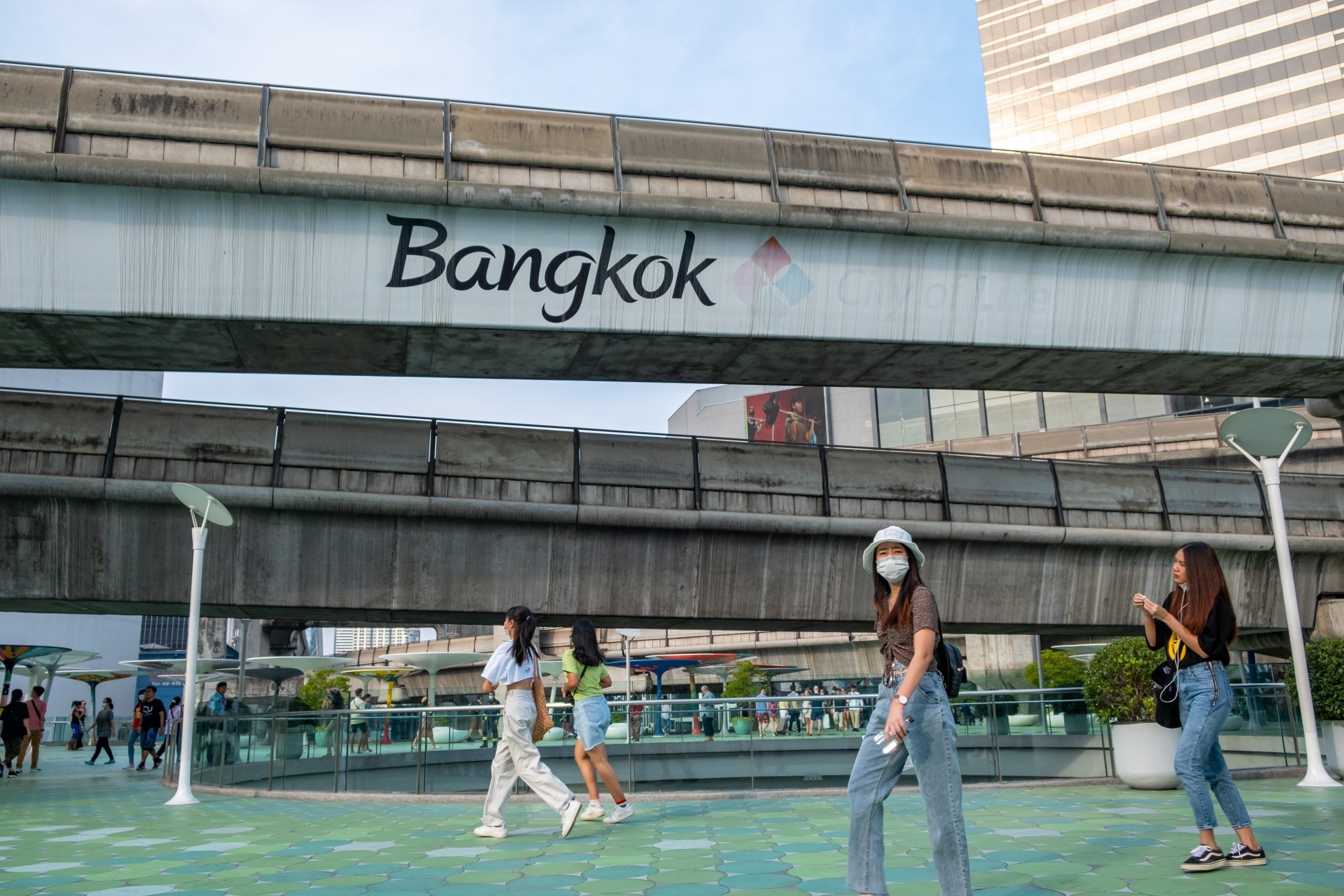
Thailand, categorised as “not free” by Freedom House, is the most polarised of the three cases. On one side there are those parties and supporters who remain staunchly loyal to the Monarchy and the military, and on the other side are those who have long supported populist former Prime Minster Thaksin Shinawatra and either his Thai Rak Thai party or its successor parties, or who more broadly oppose military intervention and authoritarian rule. This cleavage has generated years of combative election campaigns, street protests, and violence.
In terms of experiences of the pandemic, each country’s government has managed COVID-19 with varied levels of success. Thailand initially contained the virus, but has struggled with higher case numbers since April of this year. Malaysia brought the first wave of the contagion under control, but has had large breakouts and intermittent lockdowns on and off since late 2020.
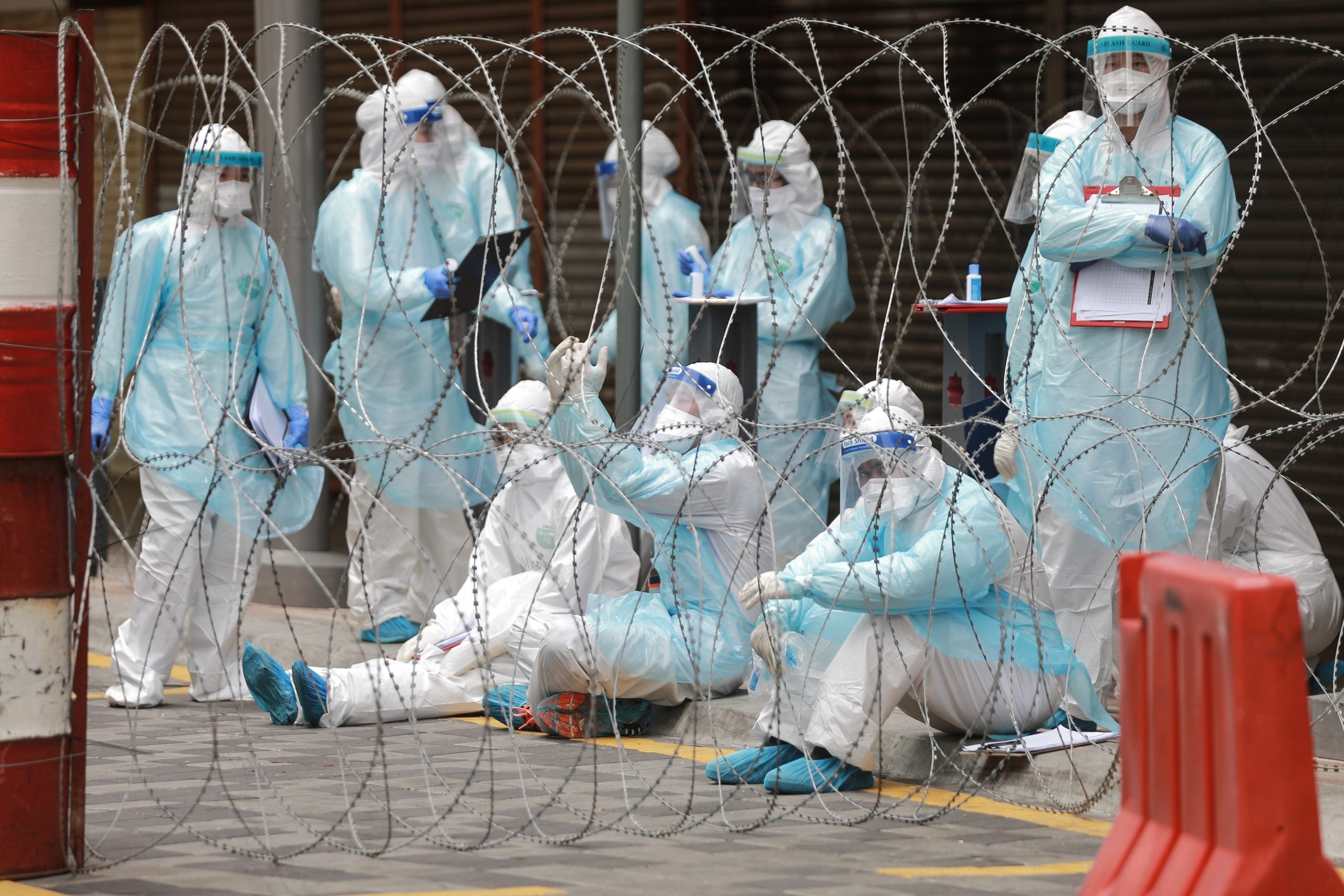
Indonesia has grappled with high numbers and a high mortality rate from the start of the pandemic. All three countries are now struggling to contain the highly infections Delta strain, with Indonesia’s infection and mortality rate now one of the highest in the world, and its health system all but collapsed. Our survey was conducted earlier this year between March and April, and before Delta had taken hold across the region.
The assumption that underpins this research is that, in more polarised settings, citizens will not only view the government’s response and health protocols through a partisan lens, they will also see different groups of citizens as deserving different kinds of punishments for flouting pandemic rules. In other words, partisan identities and pre-existing identity conflicts infuse and shape who people blame for the virus, and who they think should be sanctioned.
To capture participants’ different partisan affiliations, we asked a simple question that could be used for all three unique political contexts: ‘Is the party you support currently in government or opposition?’ The results are displayed in Table 1.
Table 1
|
|
Supports party in government (%) |
Supports party in opposition (%) |
|
Indonesia |
73 |
27 |
|
Malaysia |
56 |
44 |
|
Thailand |
50 |
50 |
Like other studies of politics and the pandemic in this region and beyond, we find that people who voted for or support incumbent parties are much more likely to see the state’s response to COVID-19 in a positive light, while opposition partisans are much less satisfied (Table 2).
Table 2
|
Overall how satisfied are you with how the national government has handled the pandemic? (%) |
||||||
|
Indonesia |
Malaysia |
Thailand |
||||
|
|
Government |
Opposition |
Government |
Opposition |
Government |
Opposition |
|
Very Satisfied |
23 |
14 |
28 |
10 |
32 |
5 |
|
Satisfied |
47 |
27 |
62 |
49 |
57 |
43 |
|
Dissatisfied |
22 |
39 |
7 |
34 |
7 |
31 |
|
Very Dissatisfied |
7 |
21 |
4 |
8 |
3 |
20 |
|
Total |
100 |
100 |
100 |
100 |
100 |
100 |
Next we used an experimental design to examine how partisanship shapes people’s views regarding protocols and punishment. Participants were divided into two groups, with one group of over 890 respondents given a hypothetical scenario about the formation of COVID-19 cluster, and a second group of 867 were given the same scenario but with one difference – those who broke health protocols had an explicit political identity:
- ‘Imagine a scenario where a large new COVID-19 cluster has emerged. Authorities found that it started from a large family gathering. The number of attendees exceeded the allowed number according to social distancing rules. Which of the following is the most appropriate punishment for attendees?’
- ‘Imagine a scenario where a large new COVID-19 cluster has emerged. Authorities have found that it started from a large gathering of people for an anti-government protest. The number of attendees exceeded the allowed number according to social distancing rules. Which of the following is the most appropriate punishment for attendees?’
The percentage results for each country are reported in Table 3. For all three countries, there is remarkably little difference between the responses of opposition versus government supporters in Group 1 (family event). In Group 2, when it comes to Indonesia — the country that in relative terms has experienced only recent political polarisation — there are still only minor differences between the responses of the two populations. In Malaysia, however, a country where political divisions have sharpened between UMNO and pro-democracy parties over the past several election cycles, we find pronounced differences between the two populations in Group 2: opposition supporters are more likely to support fines and warnings for anti-government actors, while a larger proportion of government supporters believe the offenders should be arrested.
The most substantial difference is among Thai respondents in Group 2, with 60 percent of government supporters in favour of arresting the offenders, versus 35 percent of opposition supporters. Thailand is arguably the most politically polarised country in the region, and these results suggest that decades of political conflict here not only colour people’s perceptions of how the state is managing COVID-19, but also motivate people to demand or support harsher punishments for political opponents they believe have broken pandemic protocols.
Table 3
|
What is the appropriate punishment? (%) |
||||||
|
|
Indonesia (n=672) |
Malaysia (n=466) |
Thailand (n=611) |
|||
|
Group 1: Cluster from family event |
Government |
Opposition |
Government |
Opposition |
Government |
Opposition |
|
No punishment |
11 |
20 |
4 |
2 |
13 |
17 |
|
Police warning or a fine |
69 |
67 |
70 |
73 |
46 |
46 |
|
Arrest |
19 |
13 |
26 |
25 |
41 |
37 |
|
Total |
100 |
100 |
100 |
100 |
100 |
100 |
|
Group 2: Cluster from anti-government protest |
||||||
|
No punishment |
8 |
17 |
6 |
5 |
8 |
19 |
|
Police warning or a fine |
69 |
68 |
48 |
65 |
32 |
46 |
|
Arrest |
23 |
16 |
45 |
30 |
60 |
35 |
|
Total |
100 |
100 |
100 |
100 |
100 |
100 |
Are these differences statistically significant? Using a comparison of means test (t-test) we find that as expected, there is no significant difference between the opinions of opposition and government supporters in any of our three countries who received the Group 1 scenario. Nor is there a significant difference among partisans in Group 2 for the Indonesian sample. When it comes to Malaysia, the difference in means between opposition and government supporters in Group 2 two falls just short of statistical significance at the 95% confidence level (p=0.065). In line with expectations, the difference between partisan groups from Thailand is statistically significant (p=0.0000).
So, Thai respondents’ views about the appropriate punishment for breaking pandemic protocols are contingent upon the political identity of the offenders. While there were observable differences in the preferences of partisan groups in Malaysia as well, those differences did not meet the threshold for statistical significance. Only in Indonesia was there no observable partisan effect, with little difference in respondents’ views about appropriate punishment.
How might we explain country-level differences? One plausible explanation is the nature of polarisation in each case. More specifically, the intense partisan conflict that has characterized Thai politics for more than a decade has, arguably, produced higher levels of ‘affective polarisation’ within the Thai population and deeper personal animus between voters on either side of the divide.
Thailand’s authoritarian reversal after the most recent military coup further solidified democratic representation as a major point of contention between the two groups, and a defining feature of the cleavage today. But in Indonesia, the most democratic of our three cases, the divide between pluralists and Islamists does not – at least not yet – reflect a sharp distinction in democratic preferences, and personal animus between political opponents is in comparative terms less intense. Affective polarisation leads to a situation where political identity conflicts infuse the way citizens perceive the pandemic and the punishments that certain groups should face for misbehaving.
The results presented here are preliminary, and the sample sizes across our three countries are relatively small. But the differences are substantial enough to suggest that political polarisation matters not just for how people perceive the pandemic, but also for how people view the appropriate sanctions fellow citizens face for breaking with pandemic protocols.
The views expressed in this forum are those of the individual authors and do not represent the views of the Asia Research Institute, National University of Singapore, or the institutions to which the authors are attached.






